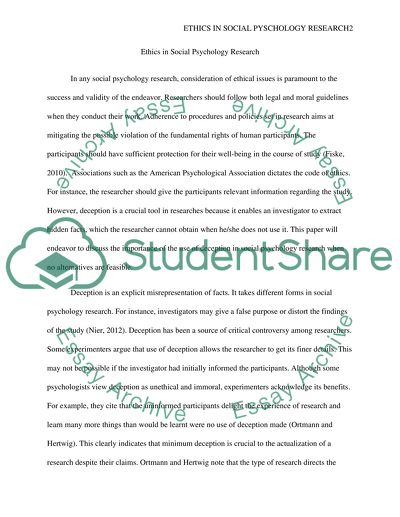Cite this document
(“Ethics in Social Psychology Research Paper Example | Topics and Well Written Essays - 1500 words”, n.d.)
Retrieved from https://studentshare.org/psychology/1445055-ethics-in-social-psychology-research
Retrieved from https://studentshare.org/psychology/1445055-ethics-in-social-psychology-research
(Ethics in Social Psychology Research Paper Example | Topics and Well Written Essays - 1500 Words)
https://studentshare.org/psychology/1445055-ethics-in-social-psychology-research.
https://studentshare.org/psychology/1445055-ethics-in-social-psychology-research.
“Ethics in Social Psychology Research Paper Example | Topics and Well Written Essays - 1500 Words”, n.d. https://studentshare.org/psychology/1445055-ethics-in-social-psychology-research.


